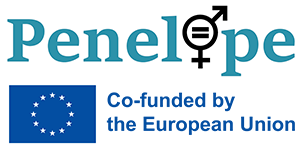

Could you please introduce yourself?
I am Beatriz Coloma Rentero, and my current position is People and CSR Manager at ECUS Sleep, a Spanish mattresses company that wants to contribute to a healthy lifestyle through rest.
My previous positions have always been linked to HR Departments in other companies. I believe in people, in the continuous improvement of processes and in socially responsible values with the aim of achieving a better society.
My academic training is aligned with what makes me most happy, which is being at the service of others. I completed a degree in Human Resources and Talent Management, a master’s in Quality and Environmental Management, a master’s in Occupational Risk Prevention, Safety, Hygiene, Ergonomics and Applied Psychology and a master’s in Corporate Social Responsibility.
Could you describe your organization and your industry/business ecosystem in a few words?
ECUS is a family business with over 40 years of experience, formed by people who, from Yecla, work sustainably and in equality, with a common goal: to contribute to a better and healthier lifestyle through rest and sleep. We are dedicated to the manufacture and marketing of sleeping equipment, especially mattresses.
Could you give some facts, figures or a description of the status-quo related to the situation of gender equality in your sector? What are the challenges encountered?
I can share with you the data of the company where I work, but I cannot compare it to the sector, as I don’t have that data. But I am glad you asked, because I am going to make an analysis of them compared to the sector.
Ecus Sleep is owned by 2 women, the board of directors is conformed by 2 women, and 32% of our workforce are women. One of the challenges we have found is that in jobs like upholstery and manufacturing of structures for bases and storage beds traditionally there were only men, so we have incorporated women in both departments.
What mechanisms do you think would be useful to address these challenges or improve the situation you have just described?
The mechanism is to analyze jobs regardless of gender, not to have stereotypes. Jobs, as well as people, have to adapt to changes such as the digital transformation, so we need to evaluate them to avoid potential risks. Training is very important, as well as fostering a culture of equality within the company.
Do SMEs in your sector have difficulties in recruiting?
They have no difficulties if the company’s management is convinced that equal opportunities are all advantages for a company. It is a matter of attitude, of culture. In Ecus Sleep luckily the company’s management is the first to promote gender equality. We were pioneers in our sector in incorporating the Equality Plan in the company in 2018 on a voluntary basis.
Would you say that gender equality offers a solution to overcome these difficulties?
The difficulties come from us, the people. Of course, for many SMEs, if they incorporate gender equality into their business strategy, they will begin to enjoy a cultural transformation with great advantages and opportunities for the business, for the people and for society in general.
Do you think SMEs in your sector are aware of gender equality regulations?
They know about it now because it is mandatory to have an equality plan. Previously I imagine they knew about it, but it was not part of their business strategy.
If so, do you know how to comply with these standards?
They have learned due to their obligation to comply with regulations. Consultants have found a business opportunity. Sadly, many SMEs still see it as a rule to comply with, but not as an opportunity that will help them to improve.
What initiatives do you think could be useful to help SMEs in this process (training, webinars, reference person in the company, etc.)?
I believe that a good way to raise awareness is through the presentation of success stories. With testimonials from people who work in companies where they are committed to equality on a daily basis.
In what ways do you think your organization could or does contribute to helping SMEs to effectively integrate a gender perspective?
We contribute with our annual CSR report, with our own e-learning platform Senttix Academy that we offer to our customers and suppliers, with publications in social media to raise awareness, with our work-life balance and quality policies and ensuring with gender equality within our selection processes.
Would you say that working on gender mainstreaming can bring solutions to other challenges you observe (retaining female HR in organizations by addressing issues such as equal pay, work-life balance, combating sexist acts…, populating rural areas, etc.)?
Of course, we must work in all areas, it is a fundamental right of all people. In no corner of the planet, no person should suffer any kind of discrimination, everyone must have the same opportunities and access to decent conditions in all aspects of their lives.
What would be your main message on advancing gender equality approaches in SMEs?
Gender equality is not only a human rights issue but a fundamental issue to ensure the competitiveness of SMEs.
Could you describe why gender equality is important to you personally and to the organization in which you work?
The first thing to keep in mind is that gender equality is a fundamental human right, regardless of where you live. Personally, I cannot conceive of a society where there is no equality, since there are all advantages: it favors personal growth, increases self-esteem, and enhances the quality of relationships.
All of us must have the obligation to promote gender equality in all areas of society by working to reduce poverty, to provide education, to protect and promote the welfare of girls and boys, and to ensure that women and men have the same opportunities and equal conditions for development.
Gender equality is important to me because it allows us to live in a healthy and fulfilling environment, it allows us to achieve a society free of stereotypes, we must live in a world where one of the main values is respect and solidarity.
At the professional level, gender equality has to be part of the company’s strategy to identify and reduce gender gaps by promoting and adapting work practices and policies without any gender bias.
Organizations have to work every day to avoid any discrimination in any field: job offers, internal promotion, salaries, avoiding stereotypes, avoiding sexist language etc…
It is very important to achieve gender equality in organizations because it has a positive impact on performance improvement, raises employee morale, contributes to have more diverse points of view which ultimately favors decision making, helps to retain the best talent, favors the work environment, enhances corporate image, builds customer loyalty, increases economic benefits, and boosts brand image.
Working and promoting gender equality only brings advantages in both personal and professional areas, therefore, we have to educate, raise awareness and work towards effective equality.
What are the experiences and/or projects that you are proud of that are related to gender equality or gender mainstreaming?
What I am most proud of is having implemented in the company where I work, Ecus Sleep, its first equality plan in 2018, when it was not mandatory by law. Going ahead of legal requirements is the greatest satisfaction, because when it is mandatory it loses merit. You have to do things because you believe in it and bet on it.
Since the equality plan was implemented, it is part of the company’s strategy, and in this year 2023 we are in the renewal process of the plan. It is part of our training plan, awareness campaigns are organized annually, our own e-learning training platform has a specific Equality classroom where all employees of the organization have access to it and they can consult the equality plan, its policies and procedures such as the use of non-sexist language, harassment protocol etc….
I am proud to promote annual training and to have developed and implemented a training platform with access to all employees. In the selection processes, when there are equal merits between men and women, the least represented is selected. In the company we have managed to increase the presence of women by 15% since 2019, in positions that have always belonged to men.
How would you describe the added value of being a woman in a position of responsibility?
It shows a very favorable trend of women in positions of responsibility. Inclusive leadership, greater listening, the desire to foster consensus, people orientation, attention to risk, management of crisis situations, adaptation to change, greater empathy. I would highlight as the greatest added value the opportunity to bet on a new corporate culture and managing style.
What are your challenges and opportunities being a woman in a position of responsibility?
To achieve 40% of women in the organization, currently we are at 31%. That the work-life-balance does not fall only on women. Manage my personal life as well as continue to be a professional and team leader, knowing how to prioritize, respect time and focus on what can really change the business and what cannot. Promote a culture and training in equality.
What would be your main message on advancing gender equality approaches in SMEs?
Gender equality is not only a human rights issue but a fundamental issue to ensure the competitiveness of SMEs.


